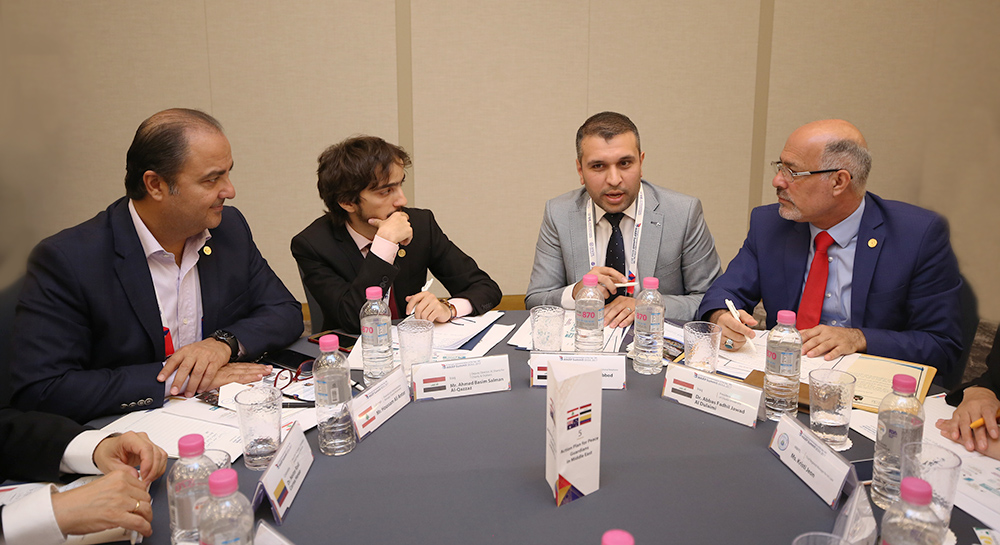Region-Specific Conference for the Implementation of the DPCW
On the 19th of September, various groups, including 155 government officials, representatives of NGOs, youth and women leaders and media professionals, attended the Region-Specific Conference for the Implementation of the Declaration of Peace and Cessation of War (DPCW). The main purpose of this conference was to discuss the establishment of cooperative governance for the development and implementation of the DPCW, the creation of peace education founded on the principals of the DPCW in each country and the enactment of various peace projects worldwide.
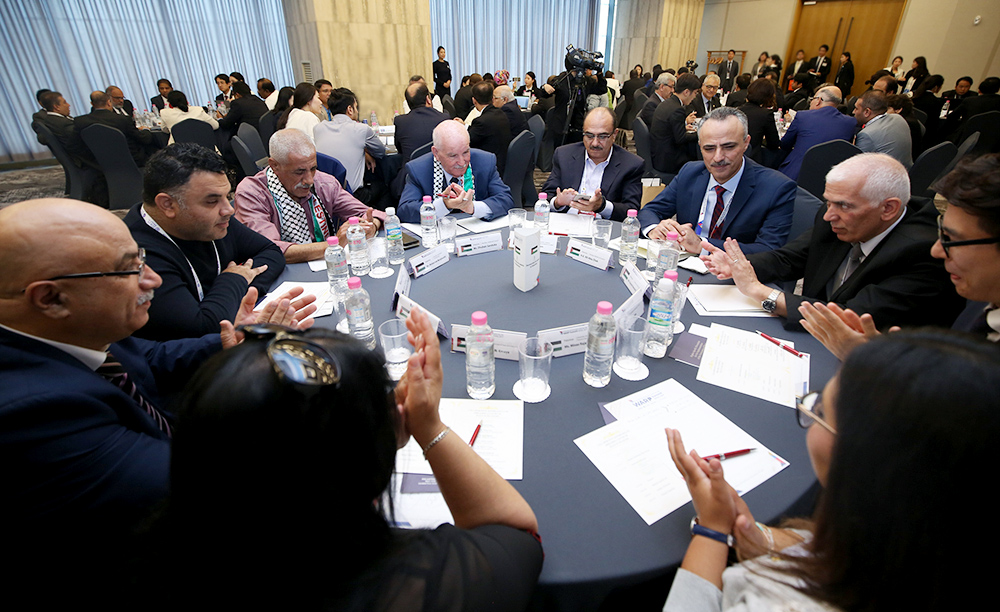
[1] Discussion for the Development of the DPCW into a Legally Binding Instrument in Each Country
-
Regional Implementation of the DPCW: Peacebuilding in the Americas: The PARLACEN’s Progress Made with the DPCW
The progress that has currently been made towards the development of a document that will be acknowledged among the nations, particularly those within the Organization of American States (OAS) and the Caribbean Community (CARICOM), was shared during this conference. This was the result of the adoption process of the DPCW, which is currently being advanced within the Security and Peace Personnel Committee and General Assembly of the Central American Parliament (PARLACEN). Participants also created methods by which they could urge government officials to support the implementation of the DPCW.
-
Regional Implementation of the DPCW: South Pacific Peace Zone
Recently the Peace and Cooperation Zone in the South Pacific region has been significantly strengthening and expanding through the implementation of the core values of the DPCW and the introduction of the background and contents of the Declaration of the Zone of Peace, which has been declared in various areas of the world. This greatly emphasizes the importance of cooperation among these regions in order to establish a fully complete and functional peace zone.
-
Regional Implementation of the DPCW: Articles 8 and 9 at work in Pakistan
There was an informative discussion regarding the importance of the role of HWPL and civil society in the process of applying the articles of the DPCW. It was also explained how specifically Articles 8 and 9 of the DPCW were utilized in a practical manner within Pakistan. Participants shared how the legislative process of prohibiting the “forced conversion” law has been progressing successfully due to the cooperation of different political parties in the creation and signing of a joint declaration that will now go through the ratification process.
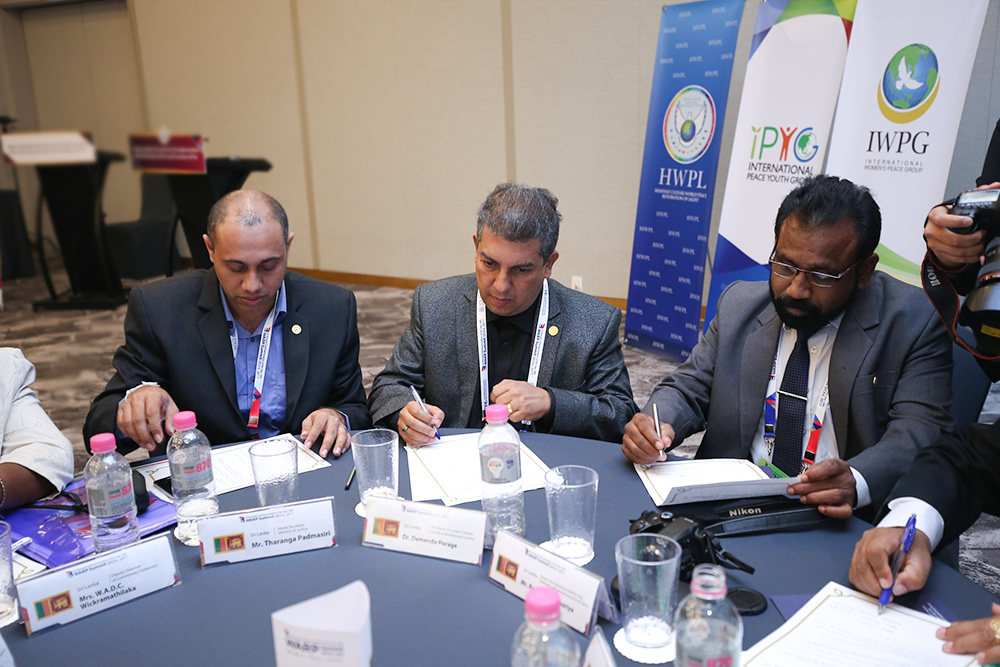
[2] Implementation of Peace Education Based on the Principles of the DPCW (Article 10: Spread a Culture of Peace)
-
Action Plan for Peace Guardians in the Middle East
Through the case example of the Peace Guardian: Peace Education Program in the Middle East and Australia, education professionals discussed how to best implement effective programs in universities that will enable the youth to create a peaceful environment and build a firm network of support for the establishment of a future of sustainable peace. The leaders and education experts present during today’s round table discussion are expected to return to their countries with these ideas and action plans and cooperate for their swift implementation.
-
Partnership for Peace in Palestine
The common goal of promoting peace for the future of Palestinian youth was discussed under the theme of “Advancing Peace Education and Support of the DPCW” by all participants present. They sought for a way to encourage the government to promote peace education for the youth, spread a culture of peace and work towards the realization of youth sovereignty through alliances between civil society and youth organizations.
-
Discussion on the Development and Implementation of Peace Education in Africa
- Discussion on the potential roadmap to receive official approval of the H.O.P.E. Program by the national government
- Discussion on the actual education contents necessary for the introduction of peace education into specialized Nigerian higher education institutions
- Sharing about the programs that have been implemented at existing Burundian refugee camps in Belgium, which allowed participants to be able to identify awareness-raising programs for peace and discuss strategies by which to implement them. The discussions were aimed at allowing each country to plan and implement its own programs according to the situation in each of those countries respectively.
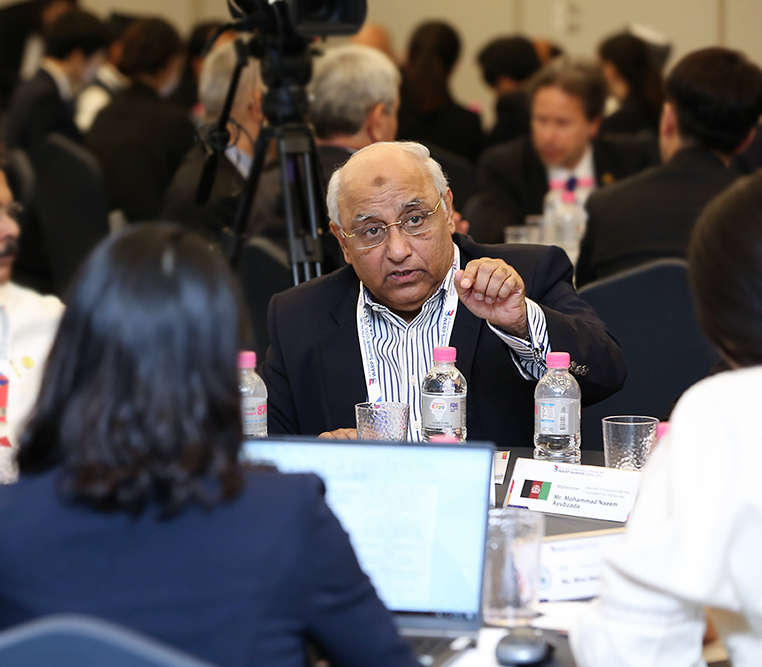
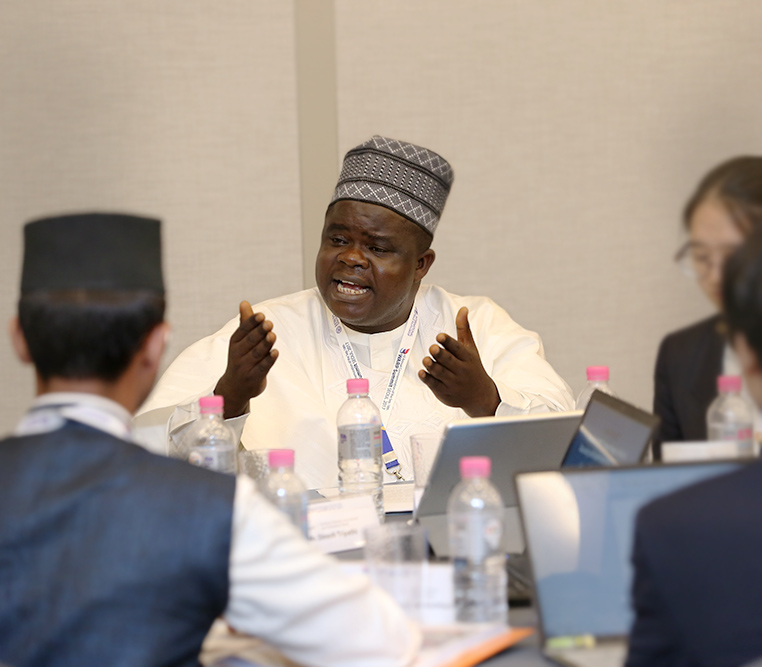
[3] Execution of Peace Projects Based on the DPCW By Governments and Civil Societies
-
Peace Cooperation for the International Society
In order to develop the current peace movement beyond the borders of a single country, HWPL and organizations and citizens cooperating with them must share existing peace activities and create others that complement those. This can be accomplished through the establishment of a direction of future action as well as an annual plan that will contribute to various issues related to peace that affect Intergovernmental Organizations, Civil Society Actors, and other international organizations and NGOs concurrently.
-
Building a Peace Network Between Governments and Civil Society Organizations
- Discussion about policies and methods of governmental advocacy for cooperative governance between governments and civil society in order to promote Malaysia’s peace policy.
- Civil Society’s Peace Cola Bonnomix is a win-win partnership that helps civil societies in other countries to solve difficult problems, overcome challenges and create innovative plans of action in order to realize peace. Experts in education, youth and women then discuss ways to strengthen and implement these realistic plans to achieve peace. These plans actions fall into three main categories: sovereignty, tolerance (mutual understanding, dialogue) and spreading a culture of peace.
- The necessity of implementing a peace project in Cambodia was recognized by participants and it was discussed about various activities for each class to carry out as a practical peace project based on Article 10 of the DPCW (To Spread a Culture of Peace).
- Discussion on the implementation of the DPCW through the strengthening of the Indian Ocean Peace Zone. There was also a meeting to create a strategic plan of action for the practical implementation of the DPCW that incorporates the cooperation between all levels and sectors of society. This will lead to the recognition that the development of the DPCW will lead to the building and establishment of a complete peace zone.
-
Sharing The Results of HWPL’s Peace Project in Africa and Discussing the Implementation of New Peace Projects Needed in Africa
- Announcement of the results of the peace project conducted in cooperation with NGOs in Nigeria.
- Discussion of the direction of implementation strategies used by local governments, youth and civic groups to promote the adoption of the DPCW in South Africa.
